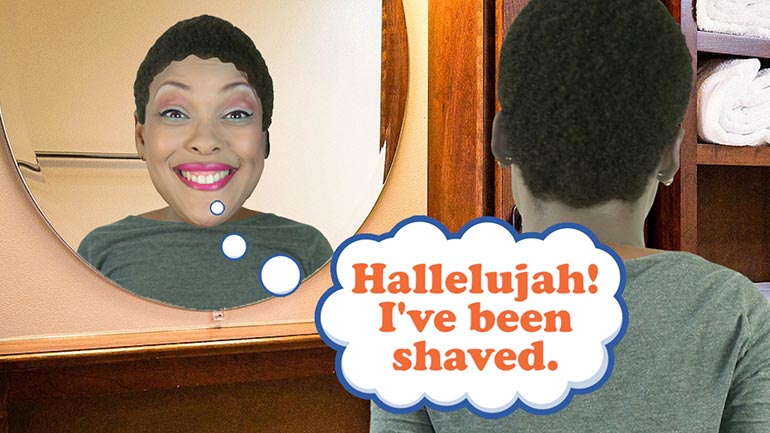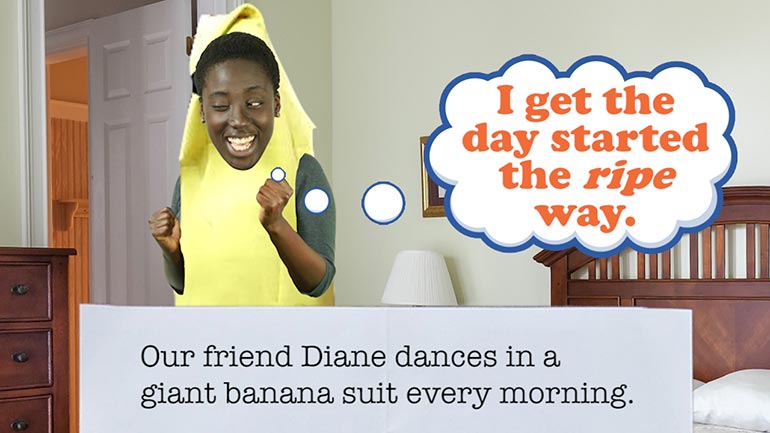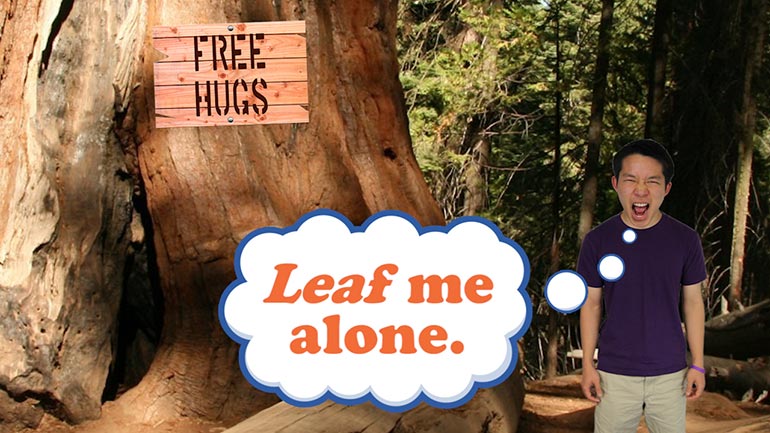ShmoopTube
Where Monty Python meets your 10th grade teacher.
Search Thousands of Shmoop Videos
ELA 4: What Can Kids Do About the Water Crisis? 10 Views
Share It!
Description:
So what if you prefer orange juice? It doesn't mean you shouldn't help out. What do you think the oranges drank to make you that juice in the first place? Water. That wet stuff is pretty important.
Transcript
- 00:04
[Coop and Dino singing]
- 00:13
It always pays off to do your research. [Boy with boxing gloves and is hit in the face]
- 00:15
About to get into a boxing match with the world champ? Research.
- 00:19
Choosing between two taco trucks for lunch? Research.
- 00:23
Solving all the world’s most serious and challenging problems? Yep, that’s right,
Full Transcript
- 00:27
only possible with research.
- 00:28
For the record, research involves a lot more than just reading. [Boy at a desk with stacks of books]
- 00:33
But it does start with reading. And a lot of it.
- 00:36
First, we need to read multiple texts about the subject we're researching. Yep – not
- 00:40
one. Multiple.
- 00:41
We should take notes on each text. Are the texts informational? Opinion? Story? What
- 00:47
are their central ideas, and what reasons and evidence do they provide to back up their
- 00:51
details and points?
- 00:53
Hint: that last one is extra important. [Notes of consideration when researching]
- 00:56
Once we've read a few texts, it's a good idea to check them against each other. Where do
- 01:00
they agree? Where do they disagree? And if they do disagree, which one has the stronger [Coop discussing comparison of texts]
- 01:04
argument or evidence?
- 01:06
After all that, we're finally ready to decide which facts we'll use as evidence to support
- 01:10
our statements, ideas, and opinions. [Boy holding a jar of peanut butter]
- 01:13
Yeah, it’s a bit of a long road, but that pot of factual gold at the end is definitely
- 01:18
worth it. So let’s apply this whole "research" thing
- 01:20
to a real world situation.
- 01:23
How about… the water crisis? [Water transforms into sand]
- 01:25
Maybe you’ve noticed your neighborhood is experiencing a drought and you want to help
- 01:28
out, because you want to make your community a better place to live… [Boy wearing a superman shirt and cape appears outside a house]
- 01:31
…or maybe you just want to finally be able to fill up your Super Soaker and ambush your
- 01:35
big sister.
- 01:35
Whatever the reason, we know what step one is: hit the books. We'll want to find books [Boxing glove strikes a book]
- 01:40
about water, whether that means books about general water facts or water conservation.
- 01:44
As long as they're relevant to the subject at hand, get reading.
- 01:49
Next, take some notes. Find the central ideas in the various books and the reasons and evidence
- 01:53
they provide to back them up.
- 01:55
Next it's time to make some comparisons. Different writers might take different approaches to
- 02:00
water conservation, so which ones make the best arguments?
- 02:05
After that, you can take all those notes and decide which facts you'll use as evidence [man carrying lots of notes]
- 02:09
to support our statements, ideas, and opinions.
- 02:12
Since you're interested in water conservation where you live, which strategies make the
- 02:16
most sense for your particular situation? This is the part where you use your own brain. [Man lying on a sofa]
- 02:21
Books can’t do everything for you, unfortunately. It would be nice if they’d help out with
- 02:26
the dishes every once in a while. The better you are at research, the better [Man fixing a broken down car]
- 02:29
equipped you'll be to fix problems in the world.
- 02:32
Unless your problem is that you’re addicted to research. In which case… good luck. [Man researching in a bath tub]
Up Next
Sticks and stones, right? Well...only sometimes. It's a good idea to make sure your words aren't going to hurt others. Let's look at some ways to d...
Related Videos
Learn to debate like a champ. It's way better than debating like a chimp. That just takes mudslinging to a whole new level.
Today we'll learn about biographies and autobiographies. And no, the second one has nothing to do with the lives of cars.
In this lesson we'll subject you to some verbs and predicates. Each one is a necessary part of a complete breakfas—er...sentence.
Choosing words carefully is important. You may end up vexing the assemblage of citizens you're conversing with...or you might even just plain bore...




